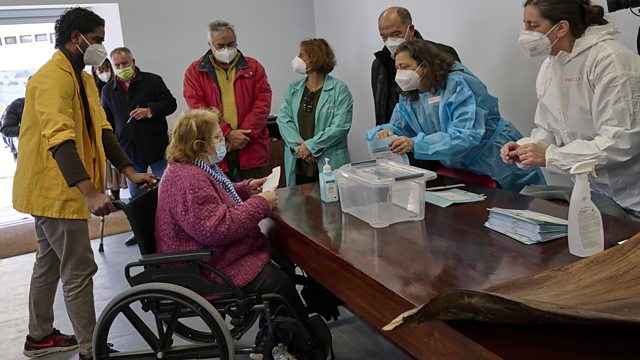The roots of Long Covid
Detecting the early signals for long Covid
There are now a number of biological indicators for the potential development of long covid. Immunologist Onur Boyman of Zurich University Hospital and Claire Steves, Clinical Senior Lecturer at King’s College London strives to tell us how pinpointing these factors is now helping in the development of strategies to predict the syndrome and prepare treatment.
The James Webb telescope has reached its final orbit. The years of planning, preparation and rehearsal seem to have paid off. The telescope is now ready to begin its mission of looking back into the early universe. ����ý Science correspondent Jonathan Amos has followed the mission.
The widely held view that human development was propelled by our ancestors developing a taste for meat is being questioned by a new analysis of the fossil record. Paleoanthropologist Andrew Barr of George Washington University suggests part of the reason for this assumption is the sampling method, actively looking for evidence to support the hypothesis.
And Michael Boudoin of Lille University has led a team of physicists who have produced the longest-lasting soap bubble ever – they managed to prevent the bubble from popping for well over a year.
Also, How is a small budget pocket radio able to recreate all the atmosphere and sounds of a football match? CrowdScience listener Andy wants to know about the science enabling his radio listening, so presenter CrowdScience Geoff Marsh sets off - microphone in hand - to follow the journey of sound on the radio.
Starting with the microphone, Geoff learns how acoustic energy is converted into electrical signals. Then ����ý World Service presenter Gareth takes Geoff to a little-known room in the ����ý called the Radio Shack. Gareth demonstrates how these electrical signals are attached to radio waves before being sent over the airwaves and they take a radio kit apart to understand how these waves are received and converted back into sound waves.
Geoff talks to a speech and hearing specialist who, through the use of auditory illusions, shows Geoff that our brains are often filling in the gaps of lower quality audio.
Finally, Geoff visits an acoustic lab at Salford University where he hears a demonstration of ‘object based audio’. This technology could enable us to create our own bespoke mix of dramas and sports, such as heightening the commentary sound or choosing to hear just the crowd, just by using the everyday speakers many have lying around them, such as mobile phones.
(Image credit: Horacio Villalobos/Getty Images)
Last on
More episodes
Broadcasts
- Sun 30 Jan 2022 00:06GMT����ý World Service South Asia & East Asia only
- Sun 30 Jan 2022 01:06GMT����ý World Service except East Asia & South Asia
Podcast
-
![]()
Unexpected Elements
The news you know, the science you don't


